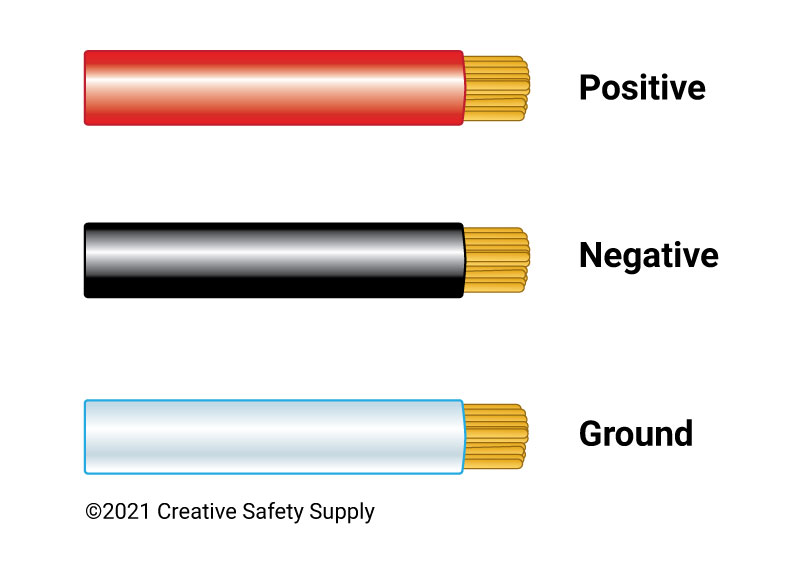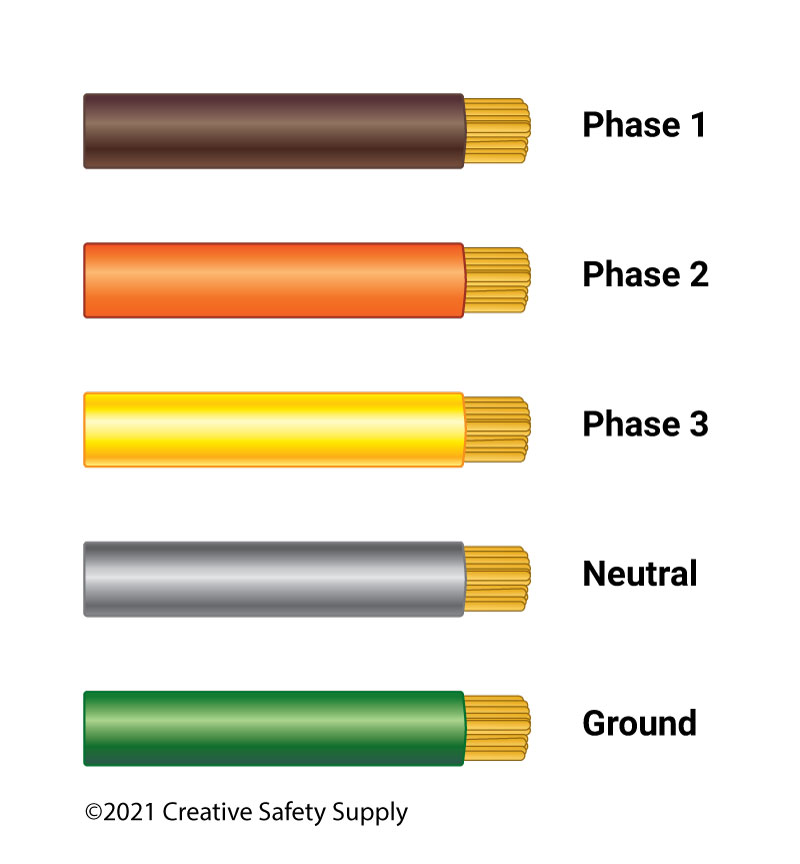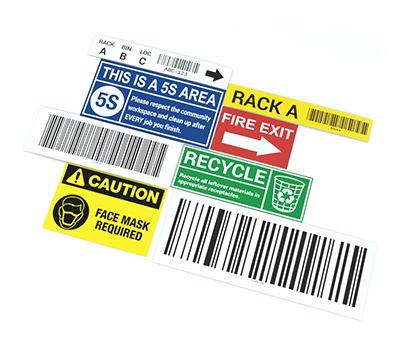
When labeling wires in the workplace you want to make sure you are conveying as much information as possible. There are standards in place for various types of wires that state what colors to use and how to use them. Following specific color coding standards for wiring will help ensure those working with the wires know what they are working with.
DC Power Color Codes

When working with DC electrical cables you will typically have just four different color options. They are as follows:
- Red – Red cables carry the positive current.
- Black – Black cables will be the negative cable.
- Grey or White – Grey or white cables are the ground wires.
AC Power (120, 208, 240 Volts)

These colors are:When working with the traditional 120, 208, or 240-volt AC power you will have several different wire colors in place.
- Black – Phase 1 Wires
- Red – Phase 2 Wires
- Blue – Phase 3 Wires
- White – Neutral Wires
- Green or Green with a Yellow Stripe – Ground Wires
277- or 480-Volt AC Power
The higher voltage wires will be different colors than those that are in the lower voltage systems. If you are
working with 277 or 480-volt wires, the following color codes will typically apply:
- Brown – Phase 1 Wires
- Orange – Phase 2 Wires
- Yellow – Phase 3 Wires
- Grey – Neutral Wires
- Green, Green with Yellow Stripe, or Copper – Ground Wires
Using Standard Colored Wires
By using these color standards throughout the facility, it will be easy for everyone to identify what type of wires are in a given place. This will help to improve workplace safety and reduce the risk of an accidental outage or other problem. Properly colored wires combined with a good wire marking strategy will provide any facility with significant benefits.
Additional Wire Color Code facts:
- Wire color codes are part of a standard system that tells the user which wires carry a current and which wires are for ground or neutral purposes. The United States follows the National Electrical Code® (NEC), a system for electrical standards that includes partial guidance on electrical wire colors. Source: https://www.thespruce.com/electrical-wire-color-coding-1152863
- The NEC says that white or gray must be used to identify neutral conductors and that bare copper or green should be used to identify ground wires. Other colors, such as black, red, blue, or yellow, can be used for live or hot wires. However, some local codes may vary, so it is always advisable to check with the local authority before doing any electrical work. Source: https://www.thespruce.com/electrical-wire-color-coding-1152863
- For wires that will be 120, 208 or 240 volts, the following electrical wire color codes are used: Phase 1 - Black; Phase 2 - Red; Phase 3 - Blue; Neutral - White; Ground - Green, Green with Yellow Stripe, or Bare Wire. Source: https://www.allaboutcircuits.com/textbook/reference/chpt-2/wiring-color-codes/
- For wires that will be 277 or 480 volts, the following electrical wire color codes are used: Phase 1 - Brown; Phase 2 - Orange; Phase 3 - Yellow; Neutral - Gray; Ground - Green, Green with Yellow Stripe, or Bare Wire. Source: https://www.allaboutcircuits.com/textbook/reference/chpt-2/wiring-color-codes/
- For wires that will be used in other countries, different electrical wire color codes may apply. For example, in the United Kingdom, the International Electrotechnical Commission (IEC) sets the standards for electrical wiring. The IEC says that green-yellow must be used for protective ground, blue must be used for neutral, and brown must be used for live. Source: https://www.electricaltechnology.org/2020/07/electrical-wiring-color-codes-nec-iec.html
Similar Questions
- What are AC power standards?
- How do wire color codes improve safety?
- What is a phase wire?
- What is the Color of the Ground Wire?
- What is the gray wire color used for?
- What are wire marking standards?
- What is neutral wire color?
- What are DC power standards?
- What’s the difference between a positive and neutral wire?

